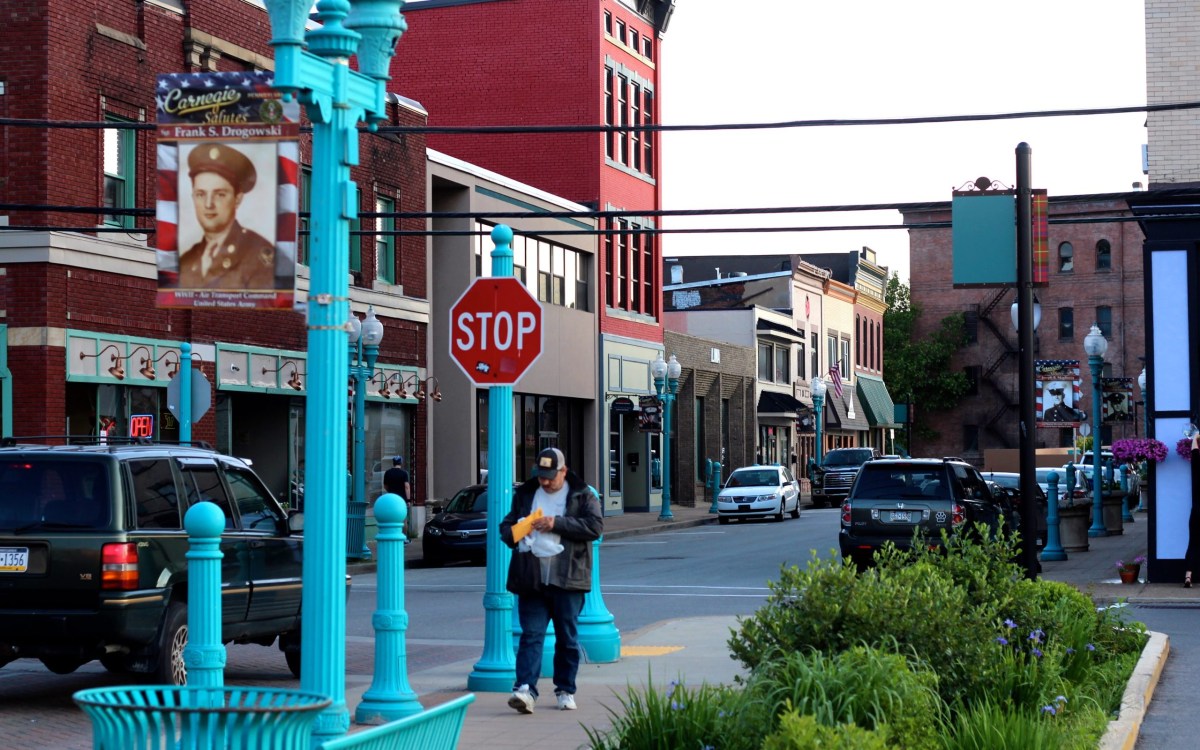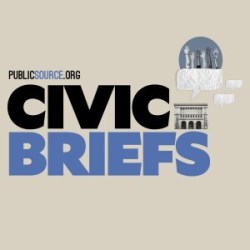The $2 trillion COVID-19 relief bill passed by Congress last March injected an unforeseen and unprecedented amount of money into Allegheny County communities. The plan includes more than $300 million each for the Pittsburgh city government and the Allegheny County government.
But throughout the county — and mostly out of the headlines — is $130 million more from the American Rescue Plan Act [ARPA], in the form of smaller amounts given to most of the county’s 130 municipalities. The sums, ranging from just under $8,000 to more than $24 million represent a relatively large opportunity for these smaller boroughs and townships.
“For the bulk of these municipalities, it’s a really good shot in the arm because it’s basically money they weren’t expecting,” said George Dougherty, the director of the public policy and management program at the University of Pittsburgh.
PublicSource spoke to officials from seven municipalities in Allegheny County to learn what the infusion has meant for them so far.
“It’s huge for us,” said Penn Hills Municipal Manager Scott Andrejchak. “We’re able to do a lot of projects that we didn’t really know how we were going to fund.”
ARPA money, including the $17.1 million marked for Penn Hills, must be spent by 2024. The Treasury Department gave broad guidelines for how the money can be spent, which include replacing lost revenue, public health needs, premium pay for essential workers and infrastructure projects.
While every city and county regularly receives state and federal funding, the ARPA sums are historic in their scale.
Penn Hills’ allocation is 30% of the size of the municipality’s entire 2021 budget and amounts to more money than the city budgeted for police, EMS, public works and libraries combined in 2021.
The township created a plan to spend its money on a mix of sewer and stormwater projects, parks facilities, shoring up its police and EMS budgets and a host of other things.
Though former Pittsburgh Mayor Bill Peduto was criticized in 2021 for allocating a lot of ARPA money to capital projects rather than items more closely tied to COVID-19 impacts like rental assistance and food aid, a number of smaller municipalities are spending the money in a similar fashion.
Hampton Township Manager Chris Lochner, who has almost $2 million in ARPA funds on hand, said the township plans to use the whole sum for capital projects — road paving, community center improvements and a restroom facility in a park.
Bridgeville, which received just over $500,000, is spending almost all of its allocation on one stormwater infrastructure project. Borough Manager Joe Kauer said the project would not have been possible without ARPA.
Dougherty said many smaller municipalities were able to spend the money on infrastructure projects because their budgets were not hit as hard by the pandemic as many once feared.
Shaler Borough Manager Tim Rogers said his team has already spent most of the first half of the money (the second half arrives in summer 2022) on sewer rehabilitation and installation.
Other municipal leaders were less sure about Congress’ intent for the money. Baldwin Borough Manager Bob Firek said Baldwin is still trying to figure out how to spend it and is “waiting for some more guidance” from the federal government.
“The guidelines are broad and murky,” Firek said. “We don’t want to use it and then have to give it back because we used it improperly.”
West Mifflin Borough Manager Brian Kamauf added, “I’d love to build a playground or something, but I’m not sure how that ties into COVID.”
Carnegie Borough Manager Stephen Beuter said his team is developing plans to use the money for infrastructure upgrades, but they too were thrown off by the Treasury’s instructions.
“It’s not extremely clear,” Beuter said. “We reached out to neighboring communities to get some ideas of the kinds of things they are using it for. But it’s definitely needed going through the pandemic, and we hope to use it as fast as possible.”
Charlie Wolfson is PublicSource’s local government reporter and a Report for America corps member. He can be reached at charlie@publicsource.org and on Twitter @chwolfson.
Keeping local government accountable to you is our job at PublicSource. Civic Briefs is an ongoing series to share more important news and information with you in real time.







